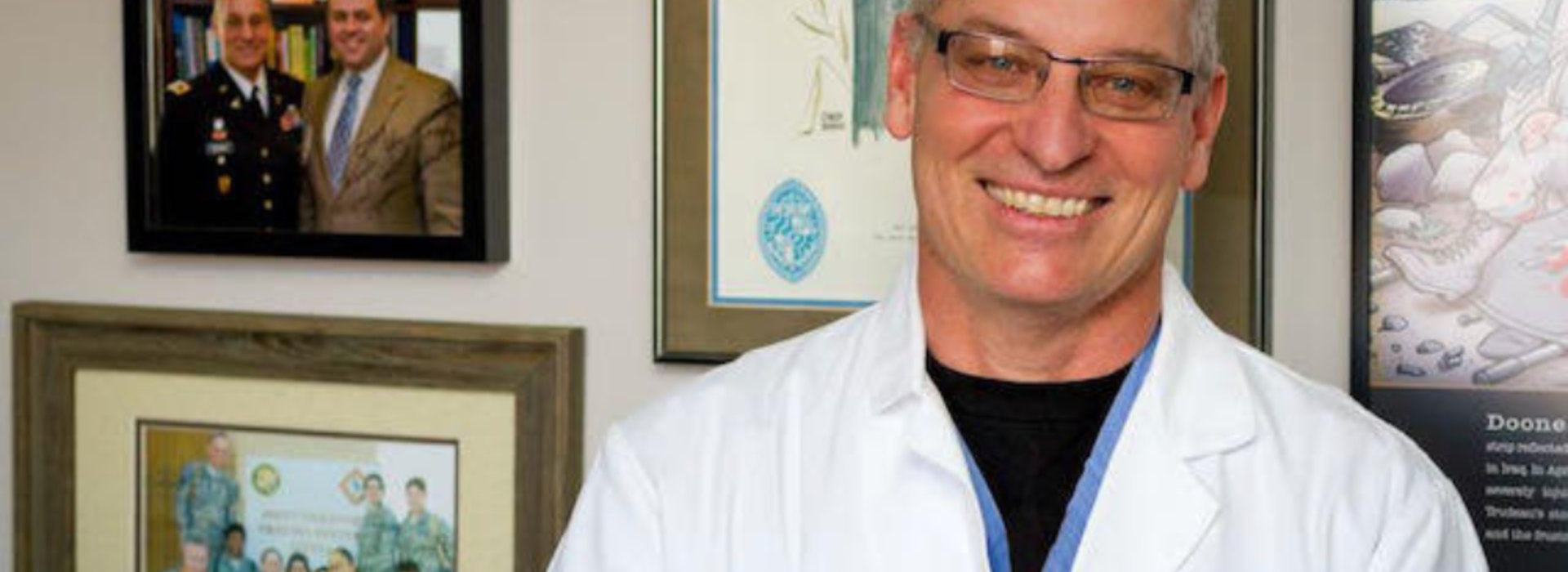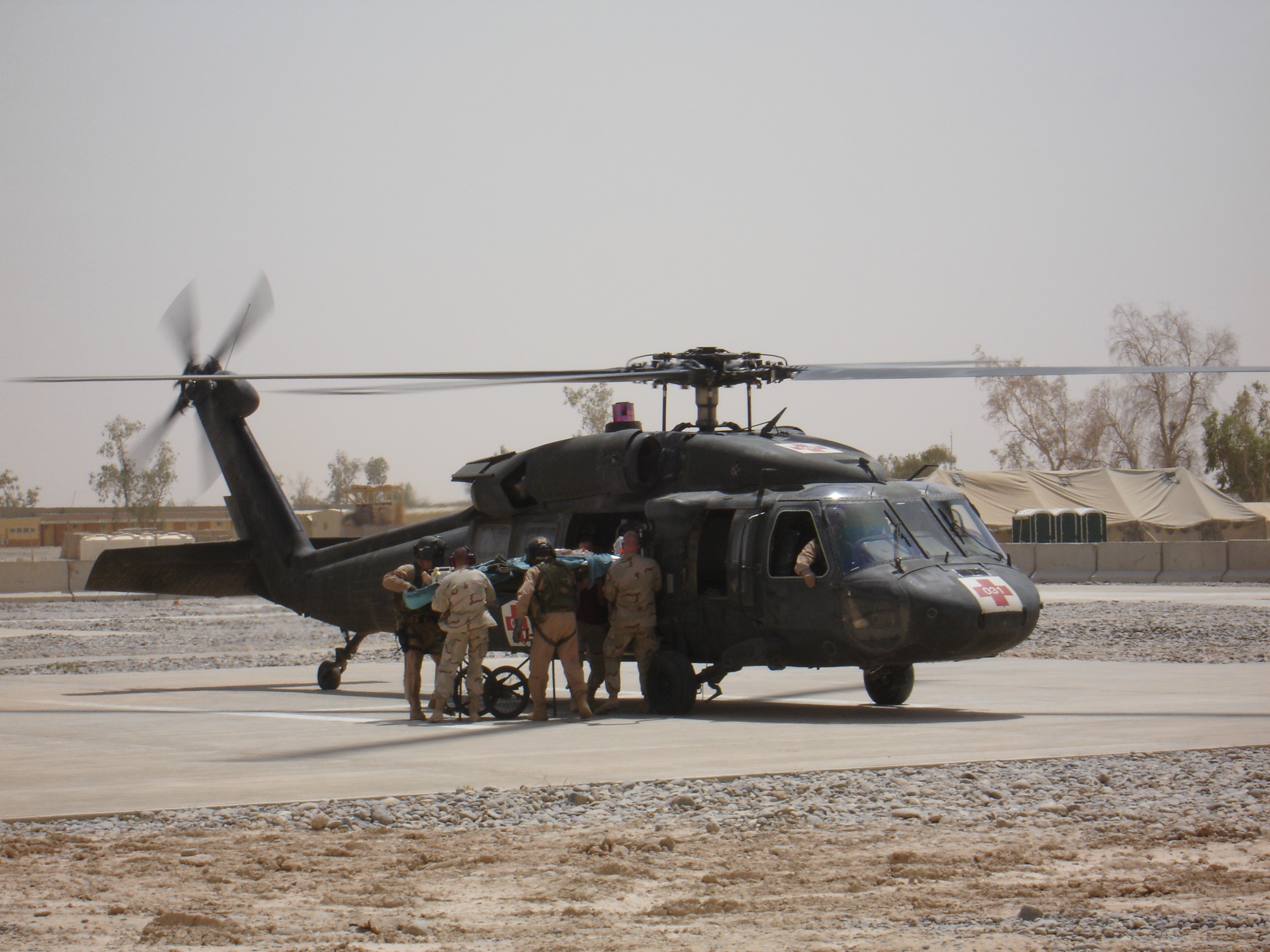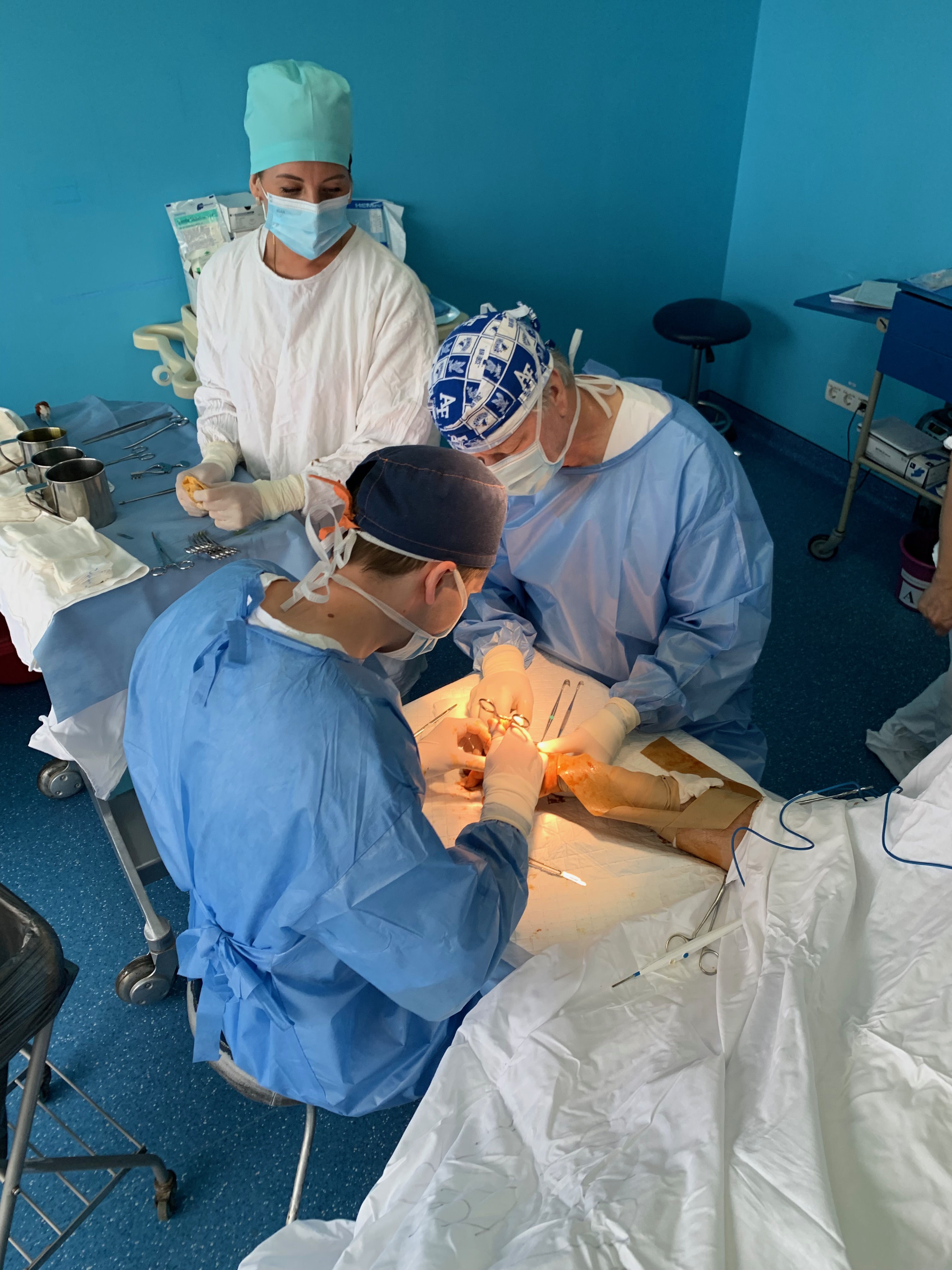
Dr. Greg Beilman brings military experience to U of M’s new Translational Center for Resuscitative Trauma
Dr. Greg Beilman brings military experience to U of M’s new Translational Center for Resuscitative Trauma
Dr. Beilman, a retired Army colonel, will apply his knowledge to improving patient outcomes both on the battlefield and across Minnesota.
When Dr. Greg Beilman, critical care surgeon, professor in the department of surgery, and director of the brand new Translational Center for Resuscitative Trauma at the University of Minnesota Medical School, joined the U.S. Army as a reservist during his residency in the 1990s, he could never have predicted where his career would take him. He traveled to Kosovo in 2000 for his first deployment, and from there, things changed in ways no one could have imagined.
“9/11 happened,” Dr. Beilman explains, “and I got very busy. I spent the next 15 years or so traveling to different parts of the world taking care of trauma patients.”

Throughout his 25-year military career, Dr. Beilman gained significant experience in combat injuries that allowed him to help multiple patients. He taught medical professionals to make rapid interventions to save limbs, ensured that trauma centers had necessary medical equipment, and saved many lives both on the front line as a surgeon and behind the scenes doing crucial administrative work. Dr. Beilman identifies his time leading the U.S. military’s trauma program in the Middle East in 2008 and 2009 as the “capstone” of his military career.
“I spent eight months in Iraq and Afghanistan figuring out how to get soldiers, sailors, airmen and marines home after their injuries,” says Dr. Beilman. “If you showed up to a combat support hospital in Afghanistan, you had over a 90% chance of going home alive and being with your family again. However, the chance for recovery drops off dramatically if you're stuck in field care because of the decreased resources and training available to a medic in the field and the fact that the clock is ticking.”
Dr. Beilman says this same predicament exists off the battlefield, particularly in rural areas that may be hours away from the closest trauma center.
“We’re not alone in the U.S. in terms of identifying that if you want to make a difference in outcomes for a trauma patient, the place you have to make that difference is in the field before they show up to the hospital,” he emphasizes.
In parts of greater Minnesota, it could take hours to get to the closest trauma center, and if there’s a snowstorm, the trip may be even longer. He aims to find solutions for this problem as director of the Translational Center for Resuscitative Trauma Care. Together with a team of researchers, doctors, EMS providers and information technologists, Dr. Beilman hopes that the center will make significant progress in delivering better care in the field for injured patients.
“Current standards of care are very broad,” he explains. “You can be a volunteer EMT provider with just CPR and a little bit of first aid training, or you can be a helicopter provider with years of experience in the ICU and trauma arena. So if you’re out there as a volunteer medic, how do we give you resources that allow you to better care for your patient?”
In Iraq, Dr. Beilman taught surgeons via video call to perform life-saving procedures on injured patients, and he says that Minnesota is in the infancy of using similar types of care. As a co-leader of the COVID-19 Incident Command Center for M Health Fairview, Dr. Beilman helped establish a tele-ICU program in all 11 M Health Fairview Hospitals, including Grand Itasca and Fairview Range.
“That makes a big difference for patients and providers. Patients are able to stay closer to home with their families and nurses and doctors appreciate a partnership from a team that has daily experience in critically-ill patients,” he says. “We should be able to do the same thing for people in the ambulance who are taking care of injured patients during transport.”
The Medical School recently secured $30 million in funding in partnership with the Uniformed Services University (USU). The Translational Center for Resuscitative Trauma Care team has worked with colleagues at USU to identify opportunities for military and university researchers to work together to solve critical medical problems for military patients.

Although he is now retired from the Army and focused professionally on his work at the U of M, Dr. Beilman continues to dedicate time to his first love of military trauma care, and he’s continually motivated to improve patient outcomes. Recently, he volunteered in Ukraine with the Global Surgical and Medical Support Group, where he backed up surgeons in Ukrainian hospitals, helped identify gaps in care, and served as a resource.
“It was a great experience,” he recalls, “but it was deja vu all over again. I was taking care of kids in Cherkasy, which is three hours from the battlefield, and in Lviv, which is two days from the battlefield. I had this flashback to what I was dealing with in Iraq and Afghanistan. It highlighted the fact that we need to figure out how to give people better training in the field, give them better tools, and leverage our technology so we can take care of these people.”
The Translational Center for Resuscitative Trauma is in the early stages of identifying needs and developing a database looking at field care and hospital care, and with Dr. Beilman in the driver’s seat, there is no doubt that patients will be better off for the center’s innovation in the years to come.